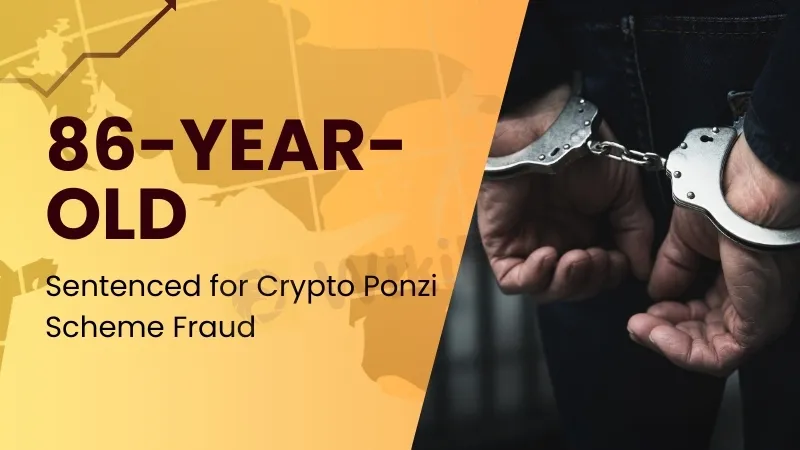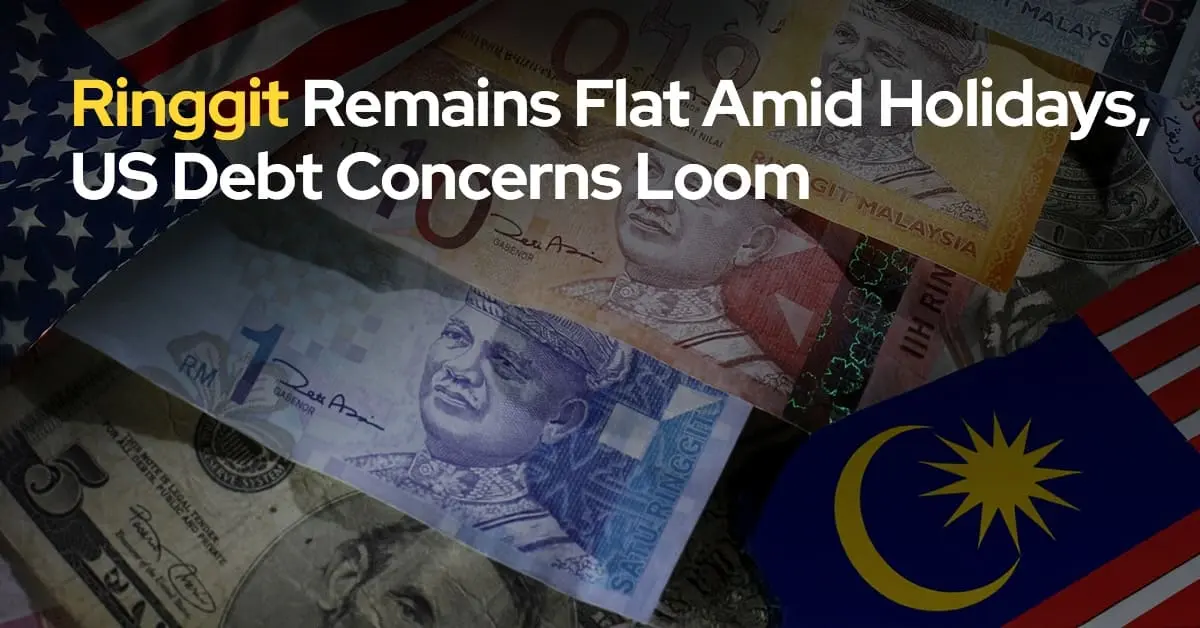简体中文
繁體中文
English
Pусский
日本語
ภาษาไทย
Tiếng Việt
Bahasa Indonesia
Español
हिन्दी
Filippiiniläinen
Français
Deutsch
Português
Türkçe
한국어
العربية
86-Year-Old Sentenced for Crypto Ponzi Scheme Fraud
Abstract:David Kagel, 86, a former Beverly Hills lawyer, has been sentenced to five years probation and ordered to pay $14 million after pleading guilty to orchestrating a crypto Ponzi scheme.

An 86-year-old former lawyer from California has been condemned to five years probation and compelled to pay over $14 million. This follows a guilty plea for operating a multimillion-dollar cryptocurrency Ponzi scam. Judge Gloria Navarro sentenced the defendant in Las Vegas on October 8. David Kagel was convicted of conspiracy to conduct commodities fraud.
The Story of The Crypto Scam
Kagel, who is presently receiving hospice care at a senior living home in Las Vegas, will serve probation under tight supervision. His participation in the fraudulent crypto investment scam began in December 2017. Kagel and two others guaranteed a no-risk, high-reward investment using crypto trading bots. Over time, they collected more than $15 million from investors.
Prosecutors said Kagel utilized his legal talents to produce letters on his law firm's letterhead. These letters persuaded the victims to believe the plan. The organization falsely stated that 1,000 Bitcoins worth $11 million were placed in escrow to protect the investors. They also offered up to 100% refunds within 30 days.
How the Fraud Was Exposed
The plan deceived investors by promising unrealistic profits. Kagel's law firm letterhead investment seemed trustworthy, leading investors to feel it was risk-free. In truth, it was a deception.
Kagel's previous legal issues did not assist his case. His legal license has been suspended twice for misconduct: first in 1997 and again in 2012. In 2023, the California Supreme Court eventually withdrew his license after he embezzled $25,000 from his client.

The Legal Fallout of the Ponzi Scheme
Kagel admitted guilt, but his two accomplices, David Saffron and Vincent Mazzotta, pleaded not guilty. They are scheduled to stand trial in a federal court in Los Angeles. The authorities remain worried about how these sorts of operations undermine faith in the cryptocurrency sector and disrupt legal banking institutions.
This instance demonstrates the hazards of crypto investments that promise large profits with minimal risk. It teaches cryptocurrency investors, legal experts, and regulators to be careful.
A Warning for Investors
David Kagel's situation serves as a strong warning. As more individuals engage in digital currencies, the number of cryptocurrency frauds and Ponzi schemes increases. Many investors are unaware of the hazards in these marketplaces, making them easy targets.
Investors should exercise caution and properly study any investment offer, particularly those involving trading bots or claims of large profits. Financial authorities continue to work tirelessly to prevent scams and bring criminals responsible.
Conclusion
The conviction of 86-year-old David Kagel for a crypto Ponzi scam demonstrates the need for prudence in the cryptocurrency sector. With $14 million in reparations and punitive penalties, the case should serve as a caution to investors and authorities, particularly in California and Nevada. As crypto fraud instances proliferate, everyone must keep aware and collaborate to avoid new scams.
Stay informed about the latest developments in cryptocurrency and investment scams. Visit the WikiFX news page for more insights!

Disclaimer:
The views in this article only represent the author's personal views, and do not constitute investment advice on this platform. This platform does not guarantee the accuracy, completeness and timeliness of the information in the article, and will not be liable for any loss caused by the use of or reliance on the information in the article.
Read more

Malaysia’s Securities Commission Enforces Ban on Bybit & Its CEO
The Securities Commission Malaysia (SC) has taken enforcement action against cryptocurrency exchange Bybit Technology Ltd.

Ringgit Remains Flat Amid Holidays, US Debt Concerns Loom
The Malaysian ringgit began the week steady against the US dollar, showing little movement due to a lack of market catalysts during the holiday-shortened trading week.

Japan to Take Action to Stabilize the Yen
Japan faces yen depreciation due to interest rate gaps; officials plan measures to stabilize forex market volatility.

New Zealand's FMA Warns Against "YouTube Crypto Investment Scam"
The Financial Markets Authority (FMA), New Zealand's financial regulator, warns individuals against investment scams that use YouTube channels to promote fraudulent cryptocurrency investment firms/websites. The authority explained on its official website how the YouTube cryptocurrency scam works, providing a step-by-step guide to help people recognize and avoid it. Read HOW THE SCAM WORKS and BE SAFE.
WikiFX Broker
Latest News
Trading is an Endless Journey
Japan to Take Action to Stabilize the Yen
Ringgit Remains Flat Amid Holidays, US Debt Concerns Loom
Taurex: Is it Safe to Invest?
Malaysia’s Securities Commission Enforces Ban on Bybit & Its CEO
New Zealand's FMA Warns Against "YouTube Crypto Investment Scam"
The WikiFX 2024 Annual User Report is here! Come and claim your exclusive identity!
Will Inflation Slow Down in the New Year 2025?
SCAM ON SCAM: New Tactic Used by Scammers
Crypto Fraud: MBBS Student Linked to Rs.8 Lakh Scam
Currency Calculator


